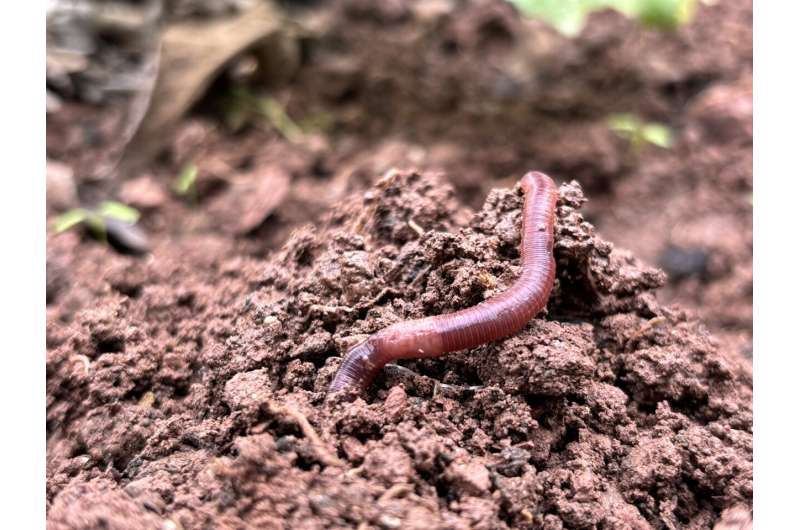
While pesticides protect crops from hungry animals, pesky insects, or even microbial infections, they also impact other vital organisms, including bees and earthworms. Now, research published in Environmental Science & Technology Letters reveals that worms are affected by the relatively small amounts of chemicals that can leach out of pesticide-treated seeds. Exposure to nonlethal amounts of these insecticides and fungicides resulted in poor weight gain and mitochondrial DNA (mtDNA) damage in the worms.
Pesticide treatment can be introduced at several different stages of a plant’s life, either by covering seeds before they’re sown or spraying already grown crops. Oftentimes, different chemicals are applied at the same time to maximize their efficiency. Neonicotinoids, also known as neonics, are one common class of insecticides used today in the U.S. and other countries, though many of them are banned in the European Union.
Recent research has shown that these insecticides and many fungicides persist in groundwater and soil, where earthworms may encounter them. One method to monitor the health of the impacted worms is through changes to the organisms’ weight and mtDNA damage. Unlike DNA held in a cell’s nucleus, mtDNA can’t repair itself as well, and thus can help indicate less obvious, “off target” effects of a particular environmental toxin.
Chensheng (Alex) Lu and colleagues wanted to use this approach to investigate how realistic amounts and combinations of neonics and difenoconazole (DIF) fungicide affected earthworms.
In laboratory experiments, the team exposed groups of juvenile earthworms (Eisenia fetida) to individual pesticides, and combinations of neonics and DIF, in concentrations that mimicked residues left behind by pesticide-treated seeds. After 30 days, the worms were weighed and their mtDNA damage was examined. While all the worms survived, the earthworms in single pesticide-treated soil gained 30 to 80% less weight during that period than a control group living in untreated soil.
Additionally, the worms exposed to one of the four tested neonicotinoids and DIF at the same time gained considerably less weight than those exposed to a single compound. Pesticide exposure also resulted in a significant increase in mtDNA damage. Because mitochondria generate most of the energy within cells, damage to their DNA could interrupt cellular functions and other metabolic processes.
The researchers say that these findings establish a link between neonics and fungicide mixtures that are likely present in the environment and earthworm health, which could inform the unexpected risks of using neonics in seed treatments.
More information:
Mitochondrial DNA Damage in Earthworms: A Hazard Associated with Sublethal Systemic Pesticide Exposures, Environmental Science & Technology Letters (2024). DOI: 10.1021/acs.estlett.3c00914. pubs.acs.org/doi/abs/10.1021/acs.estlett.3c00914
Citation:
Pesticides to help protect seeds can adversely affect earthworms’ health (2024, February 14)
retrieved 14 February 2024
from https://phys.org/news/2024-02-pesticides-seeds-adversely-affect-earthworms.html
This document is subject to copyright. Apart from any fair dealing for the purpose of private study or research, no
part may be reproduced without the written permission. The content is provided for information purposes only.







